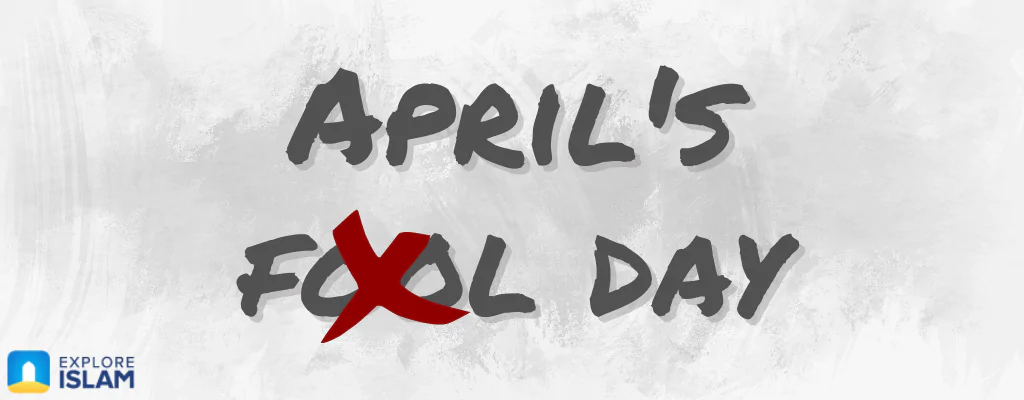This article will discuss April Fools’ day; its time, nomination, origins, and celebrations. Moreover, we will review April Fool’s from the Islamic perspective and if Islamic teachings match well with these occasions. Follow the article to learn more!
Here we will learn the following:
When is April fools’ day?
April Fools’ Day is an annual custom that occurs in April; specifically on the 1st of the month. It is a well-known occasion in the western countries where they celebrate the day in a different, unusual way.
It is celebrated in the Middle East as well; however, it is uncommon and confined to a group of non-Muslims or other non-practicing Muslims there.
Why is it called April Fools’ Day?
Surprisingly, this day is called ‘April Fools’ Day’ referring to the fools that happen on this day. These include practical jokes, playing tricks, telling lies, doing pranks, fooling others, and finally yelling out loud “April Fool” when the trick is revealed!
The name clearly defines its terrible concept and how it contributes to an unhealthy, terrifying, and dangerous community over time.
How is April Fools’ Day celebrated?
April Fools’ Day is a vast field of incremental creativity to terrify others and fool them where people create unique, different practices to fool others and play tricks on them.
We assume this creativity would be healthier and much better if used through a healthy context away from tricks or lies.
People usually celebrate April Fools’ Day by (The following are the most easy/acceptable ones):
- Change someone’s device wallpaper to a photo of cracked glass
- Flip the display of somebody’s computer screen
- Change the timing of the clock
- Throw real-looking plastic spiders and insects all over someone’s house
Those who celebrate aim to have fun and laugh. Here are some ideas to have fun with your beloved family in a proper way:
- Throw messages in their pockets, on their laptop screen, or even in their lunchbox on how much you admire them.
- Plan a customized surprise party!
- Buy them something they always need and put it secretly in their cupboard.
- Send them a gift anonymously, with a mystery message and let them guess the sender.
There are many more ideas to surprise others and spread happiness other than spreading fear or making unacceptable tricks. These kind acts shouldn’t be confined to any day in the year or named under a specific custom name. However, it should be practiced all year in the name of kindness and generosity.
When did April Fools’ Day start?
It is very well debated when April Fools’ Day started. Some people assume it started early in 1564, while others assume it is in 1582. However, some references refer to more recent years.
It is apparent it has no well-known start date and thus, no clear history or origin.
What is the origin of April Fools’ Day – Who started April Fools’ Day?
As we previously mentioned, there is no well-known start date origin for April Fools’ Day. We collected four main assumptions of its origin in a previous article:
1-The French Calendar Reform of The Sixteenth Century
2-Polytheistic Celebrations on The Beginning of Spring
3-British Folklore Links April Fools’ Day to The Legendary Town of Fools Located in Nottinghamshire.
4- Spanish Celebration in Remembrance of The Day They Defeated Muslims
For more details, visit our article ‘History of April Fool’s Day in Islam’.
Why do we celebrate April Fools’ Day?
Muslims do not celebrate April Fools’ Day, nor do they ever call themselves ‘Fools’.
Islam teaches us to respect ourselves and respect others no matter their age, ethnicity, or gender. Islam also forbids telling lies and tricking others in the name of having fun or telling jokes.
Muslims shouldn’t follow traditions of unknown origins, aims, and founders. They only submit to God (Glorified and Exalted be He) Who Blesses human beings with the two Islamic Eids every year; Eid Al-Fitr (after Ramadan), and Eid- Al Adha (after Hajj).
Islam is a pure monotheistic religion that ensures peace and happiness in society and most importantly unity and submission to God (SWT). If you would like to know more about Islam subscribe to our blog or perhaps send us a message!

